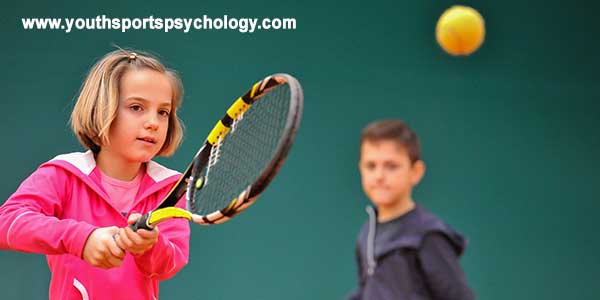
Do Your Sports Kids Get Nervous About Competing?
Some young athletes believe they can’t be successful if they’re nervous.
But this isn’t always true.
Those who get nervous believe there’s nothing they can do to control these feelings. As a result, they often perform tentatively and don’t do well. They then use that experience to tell themselves they won’t be successful.
We often think that elite athletes can rise above their nervousness, sink the winning shot or perform perfectly every time they compete.
But this view isn’t helpful to sports kids; it makes younger athletes set high expectations, hoping to emulate the pros.
Truth is, it’s not possible to perform all the time without being nervous. The best athletes in the history of sports have had to deal with nerves. It’s human. If kids are nervous, they can still be mentally tough. They can continue to perform even if they’re feeling uncomfortable.
For example, PGA golfer Rory McIlroy, at the age of 30, already has Hall of Fame credentials as a 15-time major winner. Yet, McIlroy said in a press interview that he experiences some degree of nervousness before every tournament.
“I’m pretty truthful with you guys. Look, I was nervous on the first tee but not nervous because of [the expectation of hometown crowd]. Nervous because it’s an Open Championship. I usually get nervous on the first tee anyway, regardless of where it is,” he said.
McIlroy identified the reason he gets nervous.
“I think I was making [the Open] a little bit bigger in my head than it needed to be,” he said.
Athletes often feel nervous when they focus too much on the importance of a competition. When they make the event bigger than it is, it increases the pressure.
McIlroy treats each competition as “just another competition” no matter who he’s playing with. He reminds himself that he’s done this before and can do it again.
“I’m just treating this like any other Open Championship. I’ve played well here for the last few years. I’ve played well on this golf course. So I’ve just got to go out and hit the shots and stay in the present.”
This is one important way to deal with nervousness: Kids need to remind themselves they’ve done this before, that they need to stay in the moment.
To help kids learn how to cope with nervous feelings, parents can also ask them to rate the importance of their next competition on a scale of 1 to 10. If young athletes rate the competition at the high end of the scale, they should find similarities to other competitions in the past that they haven’t rated so high. Making comparisons to other competitions that didn’t seem as important can help them lower their expectations.
Sports kids need to avoid thinking about the outcome and what the outcome might mean to them. Many kids experience fear about how they think others will respond to their performance. Help them identify those fears and tell them to focus on the task at hand–not on others’ opinions.
Athletes of all ages get nervous, but mental game skills will help them cope with these feelings and ensure the nervousness doesn’t overwhelm them. Help sports kids follow the example of McIlroy, and try to put games in perspective. As he said, he was making the Open a little bigger in his head than it needed to be.
Related Articles on Youth Sports:
- Kids Who Struggle with Pregame Nerves
- How Choking Hurts Athletes’ Performance
- Athletes Who Get Nervous During Tryouts
*Subscribe to The Sports Psychology Podcast on iTunes
*Subscribe to The Sports Psychology Podcast on Spotify
The Composed Sports Kid

“The Composed Sports Kid” audio and workbook digital download program for young athletes and their parents or coach helps kids cope with frustration and anger in sports. Help your sports kids learn how to manage expectations and let go of mistakes so they can keep their head in the game.
The Composed Sports Kid system is really two programs in one–one program to train parents and coaches how to help their kids practice composure, and one program that teaches young athletes–ages 6 to 13–how to improve composure, let go of mistakes quickly, have more self-acceptance, and thus enjoy sports more!
